The most vividly coloured vegetable, the beetroot (beta vulgaris rubra) is so nutritious that you’ll want to have some every day! Packed full of easily absorbed nutrients, the health benefits of beetroot remain some of the best among the plant-food world!
The easiest way to incorporate beetroot into your diet is to consume it freshly juiced. It can also be eaten raw by preparing it grated, sliced or chopped and added to salads or eaten on its own. Its flavour is deliciously sweet.
Drinking beetroot juice can not only boost your energy and eliminate fatigue, it can improve your memory, enhance exercise performance, keep your immune system strong, give you glowing healthy skin, protect cells from damage and cancer, relieve constipation, reduce blood pressure, improve cardiovascular health and protect the liver. It’s an important food to consume during pregnancy as all the active constituents are necessary for the mother and growing fetus. Beetroot can also assist to strengthen the body and detoxify the liver and kidneys and increase circulation.
You can’t beet that!!
Beetroot Nutrition Facts
Beets come with quite an impressive nutritional profile. They’re low in calories, high in fiber and contain a plethora of vitamins, minerals and phytonutrients.
One of the major health benefits of beetroot is that they contain a compound called nitrate. The nitrates found in beets aren’t the same thing as the synthetic nitrates added to packaged meats. In fact, nitrates found in whole foods like beets are very beneficial.
When we consume natural, inorganic nitrates like those in beets, our body converts it to nitric oxide, which relaxes and dilates blood vessels.
Here is an overview of the nutrients found in about one cup of raw beets (1):
– 58 calories
– 0.2 grams of fat (6.8 mg from Omega-3 fatty acids and 74.8 mg from Omega-6 fatty acids)
– 0 cholesterol
– 106 milligrams sodium
– 13 grams carbohydrate
– 2.2 grams protein
– 4 grams dietary fiber
– 9 grams sugar
– 11% RDI of vitamin C
– 37% RDI of folate
– 5% RDI of vitamin B6
– 8% RDI of magnesium
– 3% RDI of thiamin
– 3% RDI of riboflavin
– 2% RDI of niacin
– 2% RDI of pantothenic acid
– 1 milligram iron (6% RDI)
– 54 milligrams phosphorous (5% RDI)
– 0.1 milligrams copper (5% RDI)
– 0.5 milligrams zinc (3% RDI)
– 21 milligrams calcium (2% RDI)
– 0.4 milligrams manganese (22% RDI)
As mentioned at the beginning, beets also contain inorganic nitrates and pigments, both of which come with innumerous health benefits.
10 Health Benefits of Beetroot
One of my all-time favourite vegetables, beets, also come with some impressive health benefits. Here are 10 health benefits of beetroot:
1. Cardiovascular Health
The nitrates found in beets are amazing for the cardiovascular system. When we consume inorganic nitrates, they get converted to nitric oxide in our body, thereby relaxing and dilating the blood vessels.
The University of Exeter, UK found that beetroot juice enhanced cardiovascular health and exercise performance. In another study, they showed that having 500 milliliters of beetroot juice just 3 hours before training or competition improves exercise performance and reduces oxygen usage (2).
Beetroot increases energy and stamina by reducing the amount of oxygen needed by blood vessels and muscles by widening the blood vessels and allowing the oxygen available to flow easily. This means you can feel energized to get everything done in your day and have longer training sessions.
By relaxing and dilating blood vessels, the nitrates in beets can also help lower blood pressure.
One study found that dietary inorganic nitrate significantly reduces blood pressure in patients with hypertension. In a double-blind, placebo-controlled clinical trial, 68 patients received daily dietary supplementation for 4 weeks with either dietary nitrate (250 mL daily, as beetroot juice) or a placebo (250 mL daily, as nitrate-free beetroot juice). They found an increase in endothelial function (cells that line the interior surface of blood vessels), and arterial stiffness was significantly reduced (with placebo having no change) (3).
The authors of the study commented, saying: “dietary nitrate [is] an affordable, readily-available, adjunctive treatment in the management of patients with hypertension.”
2. Blood Builder
Beets are an excellent source of iron, folic acid and manganese (all of which are good for the health of our blood). Iron is is necessary for normal healthy blood and energy production as it transports oxygen through our blood to provide energy and reduce fatigue for everyday activities like walking and chores.
We also need iron to keep us healthy as it supports our immune system by producing lymphocytes and natural killer (NK) cells that help prevent infection.
One study found that beetroot juice increases hemoglobin levels in adolescent girls. 100 milliliters of beetroot juice was given to each adolescent girl for 20 days in mid-morning. Results showed that the experimental group had a highly significant improvement in hemoglobin levels following the end of the 20-day mark (4).
3. Anti-Inflammatory
Anti-inflammatory compounds in beets like betalain, isobetalain, and vulgaxanthin lessen inflammation in the body by inhibiting the activity of cyclo-oxygenase enzymes COX-1 and COX-2. The COX enzymes are used by our cells to produce messaging molecules that trigger inflammation. Under normal circumstances (like when we get a cut or bruise), the production of these pro-inflammatory messaging molecules is a good thing. However, when the body is undergoing chronic, unwatered inflammation, these messengers can make things worse (5).
The anti-inflammatory effects of beets are so promising that some researchers believe beetroot extract supplements could out-perform the benefits of many synthetic drugs (6).
Chronic inflammation is at the root-cause of virtually every disease known to man (like cancer, heart disease, autoimmune disease, allergies and more), so the fact that beets can help us overcome this major threat to our health and overall well-being is an exciting prospect. Beets are cheap, and can be found just about anywhere, making this natural remedy for inflammation an accessible one.
5. Cancer Protection
Many of the cancer-fighting properties of beets stem from the fact that they help reduce inflammation in the body. Betalain is an antioxidant that possesses strong free radical-scavenging activity, while also being a modulator of oxidative stress. Studies have found its potential in helping boost the immune system and preventing cardiovascular disease, neurodegenerative disorders and cancer (7).
Beet root extract has also been tested in vivo, revealing significant tumor inhibitory effects (8).
One study published in the journal Phytotherapy Research took extracts of betanin (the pigment molecule of betalain) and its stereoisomer isobetanin from fresh beetroots. The betanin/isobetanin concentrate significantly decreased cancer cell proliferation and viability. In the breast cancer cell line (MCF-7), the expressions of apoptosis-related proteins (Bad, TRAILR4, FAS, p53) were strongly increased, and the mitochondrial membrane potential was altered, meaning the beetroot extracts strongly encouraged apoptosis (cell death) of the cancerous cells. The betanin-enriched extract also had no obvious effect toward normal cell lines, which typical cancer treatments do.
Many studies have also demonstrated beetroot extract as being highly beneficial when combined with other chemotherapeutic drugs to help mitigate their toxic effect on normal cells (9).
6. Better Immunity
The health benefits of beetroot also include strengthening our immune system. Beets are high in zinc, copper, as well as vitamins A and C – all nutrients known to boost immunity. Vitamin C acts as an antioxidant that mitigates the damaging effects of oxidizing compounds that can cause direct damage to our cells. Vitamin A increases antibody production and stimulates your white blood cells, which helps ward off infections.
Beets also contain many other phytonutrients and pigments that reduce inflammation, and strengthen our immune defenses. A scientific review conducted in 2015 found that the most abundant betalain found in beetroot, betanin, was the most effective inhibitor of oxidative stress (10). The high antioxidant activity of betanin appeared to come from its ability to defuse highly reactive free-radicals targeting cell membranes. This suggests that beets are a great way to protect against oxidative damage to DNA, lipid and protein structures.
7. Enhanced Libido
Surprisingly, beets are an effective, all-natural aphrodisiac. They’re rich in the mineral boron, which plays a role in sex hormone production (11).
The high concentration of nitrates in beets, and their ability to relax and dilate blood vessels can also benefit sexual health as well. Some studies even suggest that beet juice can help treat erectile dysfunction (12)!
8. Better Cognitive Health
As we’ve seen throughout this article, beetroot and beetroot juice help increase blood flow through blood vessel dilation (all thanks to the inorganic nitrates they provide). Enhanced blood flow also includes better blood flow to the brain – which may be able to serve the elderly as a fight against Alzheimer’s disease, dementia and other cognitive conditions.
When the brain starts to age, parts of it become poorly perfused, meaning not enough blood flow reaches those parts of the brain. One study actually looked into how dietary nitrates affected 14 adults age 70 and older over a period of four days. At the end of their four-day testing, the participants had MRIs done. What they found was that after eating a high-nitrate diet, the adults had increased blood flow to the white matter of the frontal lobes (13). This area of the brain is prone to degeneration, which can lead to dementia and other cognitive conditions.
Another study in type 2 diabetics investigated the effect of beets on simple reaction time, which is a measure of cognitive function. They found that reaction time during a computer-based cognitive function test was 4% faster in individuals who consumed 250 milliliters of beetroot juice daily for two weeks, compared to the placebo (14).
9. Detoxification
Beets are loaded with liver-loving nutrients like iron, antioxidants, betaine, pectin, and vitamin B. Betaine prevents fats from accumulating in the liver, which helps prevent fatty liver and cardiovascular disease (15). The betalains in beets provide support for the Phase 2 detoxification processes in the liver. It does so by increasing the activity of phase II enzymes in the liver, therefore encouraging detoxification by helping the liver quickly shuttle toxins and drugs to the kidneys for excretion (16).
The liver also loves pectin, which is a water-soluble fiber that helps attach to, and flush out cholesterol and toxins from your blood, thereby assisting the liver.
When your liver is able to detoxify chemicals and toxins more effectively, then your body is better able to balance your hormones, keep your cholesterol levels in check and improve your energy levels.
10. Improved Digestive Health
Beets are insanely high in fiber! Just one cup provides you with over 4 grams of dietary fiber (which is a lot, given the small amount!). Fiber bypasses digestion and shuttles itself to the colon where it either feeds the friendly gut bacteria (especially true of raw beets) or adds bulk to stool.
More fiber in the diet can help keep you regular, and prevention digestive issues like constipation, diarrhea, inflammatory bowel disease and diverticulitis. Fiber has also been linked to a reduced risk of chronic disease like type 2 diabetes, heart disease and colon cancer (17, 18).
How to Prepare Beetroot for Consumption
Adding beets to your diet is a great way for improving overall health. Whether you add them to your salads, or make juice out of them, there are many ways you can sneak them in.
One of the best ways to eat beets is raw, so that you aren’t missing out on the important benefits they have to offer. I like to peel my beets before eating them, because then that earthy/muddy taste isn’t as apparent.
I have plenty of juice recipes for beets in the recipe section of this website, and even a fermented beet kvass recipe that is super simple to prepare. I like to add in other ingredients when juicing beets like ginger, lemon, apple and carrot to help mellow out the strong beet taste. However, if you don’t mind the taste of straight, raw beet juice, go for it!
If you’re about to participate in an athletic event, I suggest juicing 1 cup of beetroot juice about 1-2 hours before the event. This will maximize your performance, and you’ll physically feel more energized by doing so.


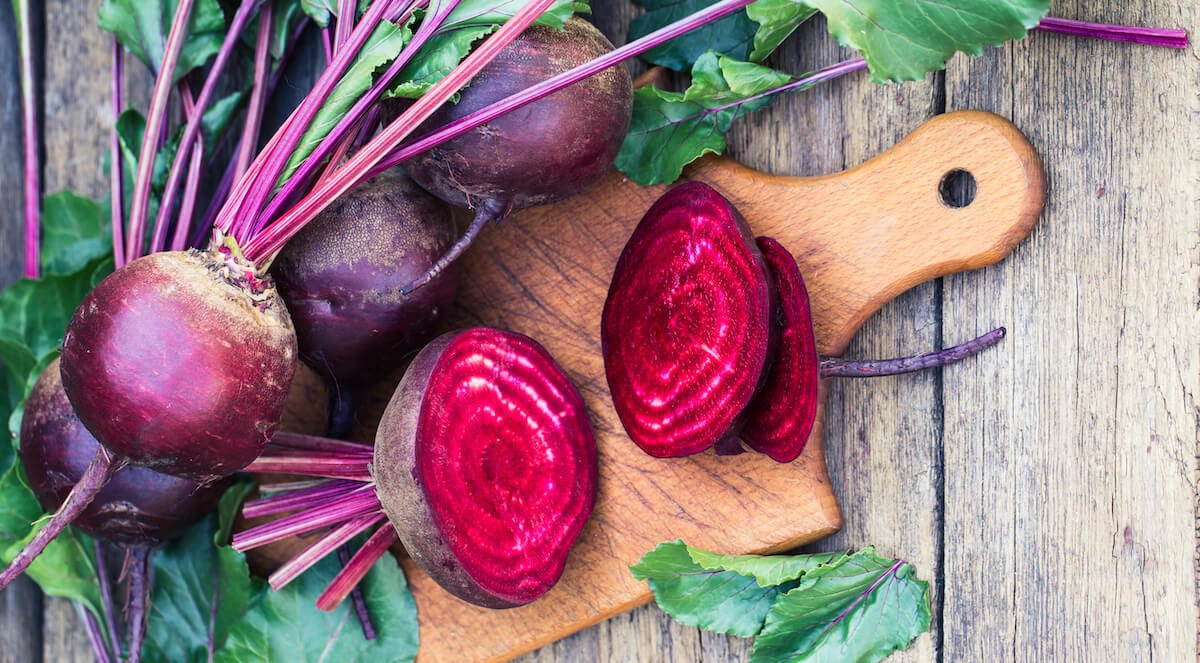

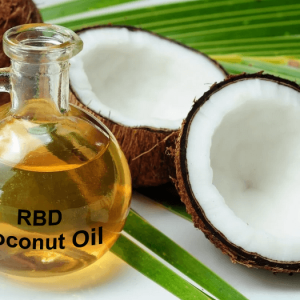


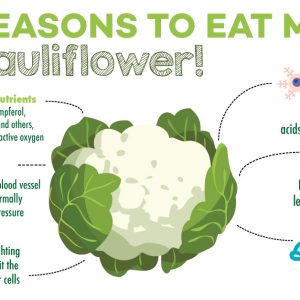
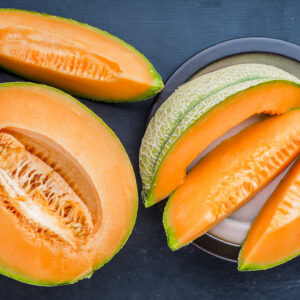
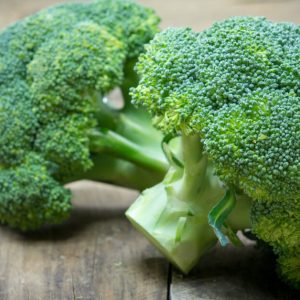
What about steaming beets. Do they lose nutrients?
They will lose a bit of nutrition, but usually roasting them is where they lose the most. A bit of steaming should be okay.
if you can’t find fresh beets, what other forms would be the best? cans, jars, pickled, powder, etc???
Raw powdered beet root would be the next best, and then pickled.
AWESOME ARTICLE TU